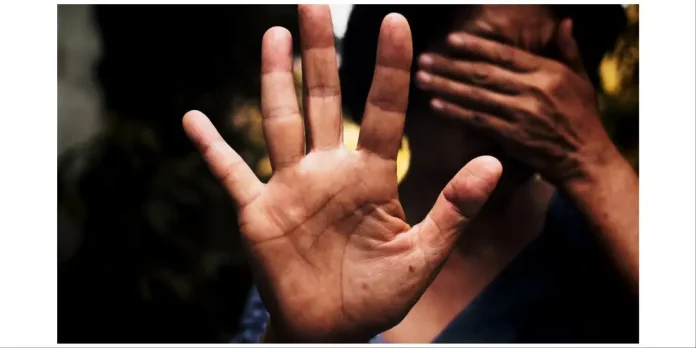There have been several cases of Sexual and Gender-Based Violence in Nigeria, despite the efforts put in place by the government, rights activists and members of civil society organisations.
The menace comes majorly in form of physical abuse, leaving victims traumatized, with many unable to speak up out of fear.
Looking at a survey by the Nigerian National Bureau of Statistics, which was conducted in 2019, domestic violence has been meted on over 39 percent of Nigerian women aged between 15 and 49, while a shocking 68 percent was reported to have encountered emotional, economic, and sexual abuse.
Benjamin Hundeyin, the spokesman of the Lagos State Police Command also revealed that about 111 cases of SGBV were recorded only in the second quarter of 2023, specifically between April and June.
Hundeyin said that 14 rape and 56 cases of domestic violence were equally recorded during the period, with about 99 suspects already charged to court.
“About 83 cases are currently under investigation, which shows the Command’s commitment to prosecuting any domestic and gender-based violence in Lagos State.
“The remodelling of the Command’s gender unit by the Lagos State Commissioner of Police, Idowu Owohunwa, is an indication of his commitment to dealing decisively with the gender-based violence culprits,” he said.
He stressed that more officers had been trained and added to the unit, with a view to improving investigations on gender-based violence cases.
Also, the Deputy Representative of Programmes in the United Nations Children’s Fund (UNICEF), Rownak Khan, earlier paid a courtesy visit to the Minister of Women Affairs, Uju Kennedy-Ohanenye, to reaffirm the global body’s support for the fight against SGBV.
According to the Minister’s media aide, Ohaeri Joseph, Khan’s visit was to acquaint the minister with the risks and deprivations that children experience in Nigeria, and to provide an update on the statutory role of the Women Affairs Ministry in promoting the rights and general welfare of children and women, as well as enhancing their ability to realize their full potentials, including the transformative actions currently undertaken in collaboration with the UNICEF to improve the protective environment, strengthen systems to leave no child behind and accelerate actions towards the attainment of Sustained Development Goals 5, 8 and 16.
Khan noted that the global body has structured areas of priorities to run between 2023 and 2024, with special focus on legal and programming frameworks, service delivery, capacity strengthening, evidence building, digital transformation, coordination and partnerships.
She disclosed that a national survey to obtain administrative data indicates that there were well over 122,968 children, comprising 5,558 girls and 117,410 boys known to be in detention facilities across the 26 states in Nigeria between 2018 and 2022.
She stressed that the alleged offenders and survivors of violence required specialized services, which are age and gender-sensitive to safeguard their rights, and to enable them access quality response services.
She outlined the states which have high prevalent cases of such sexual and gender-based violence as female genital mutilation and child marriage to include Lagos, Ebonyi, Cross Rivers, Adamawa and Sokoto, as well as the Federal Capital Territory, FCT, Abuja.

